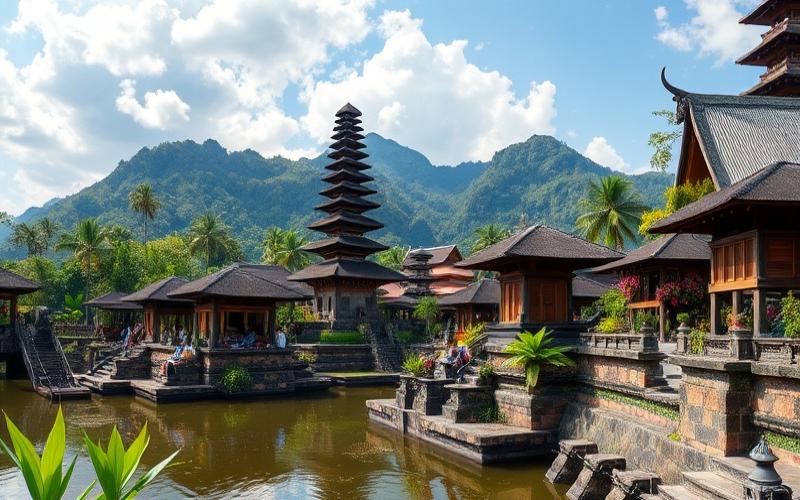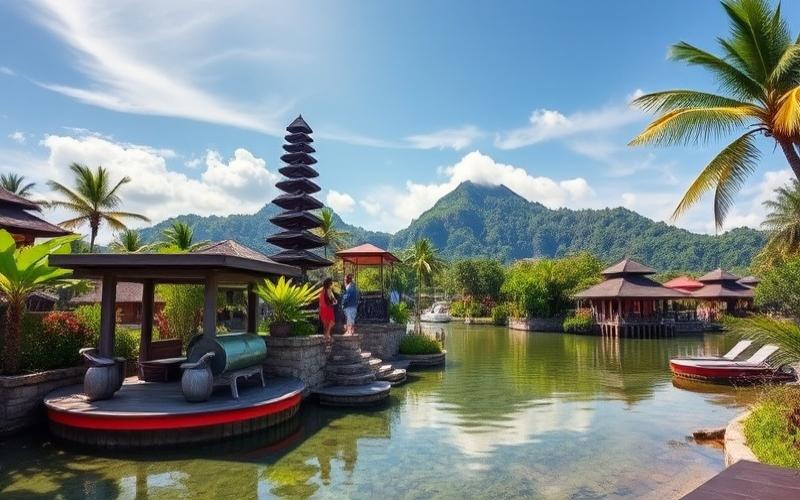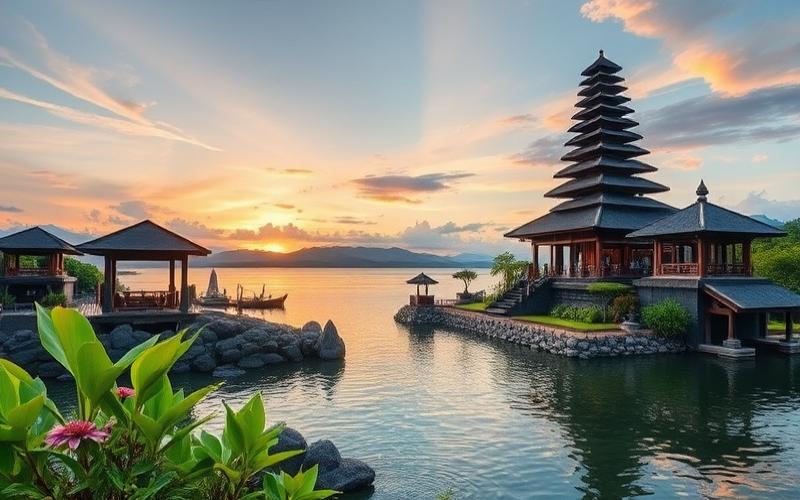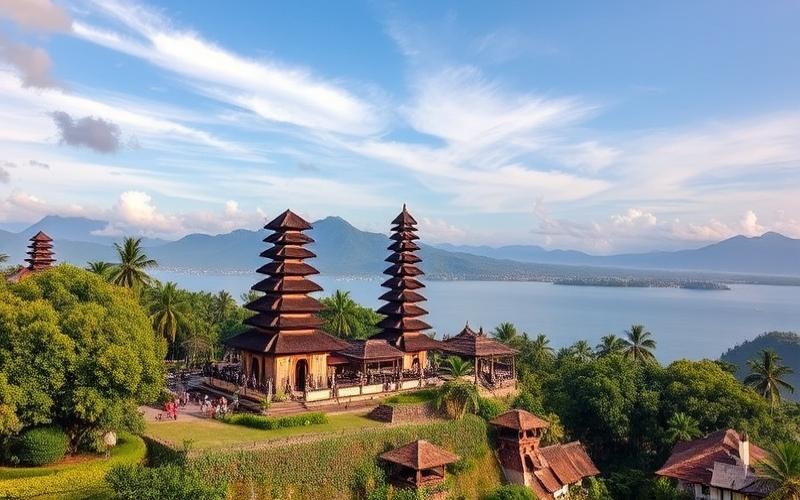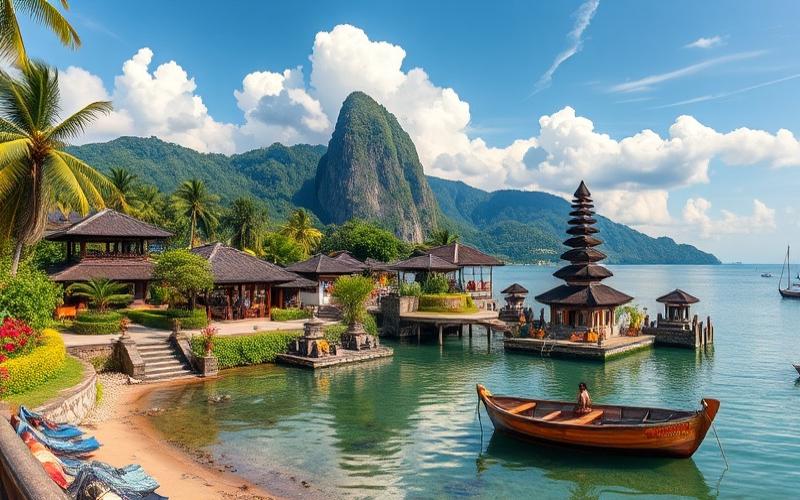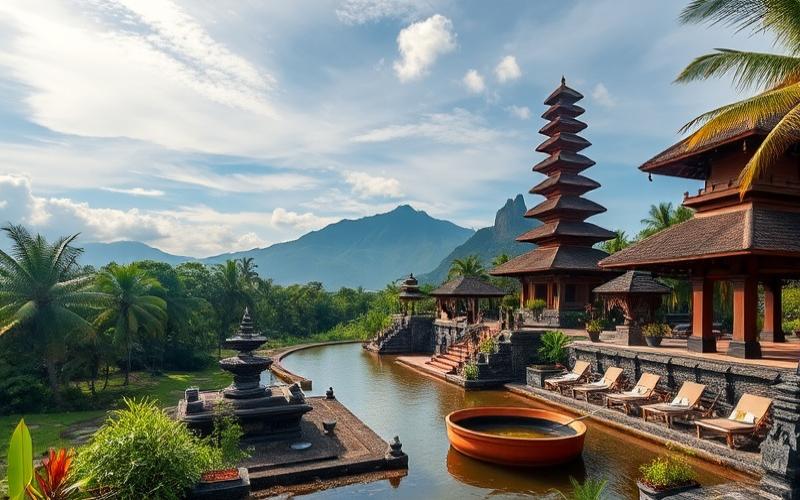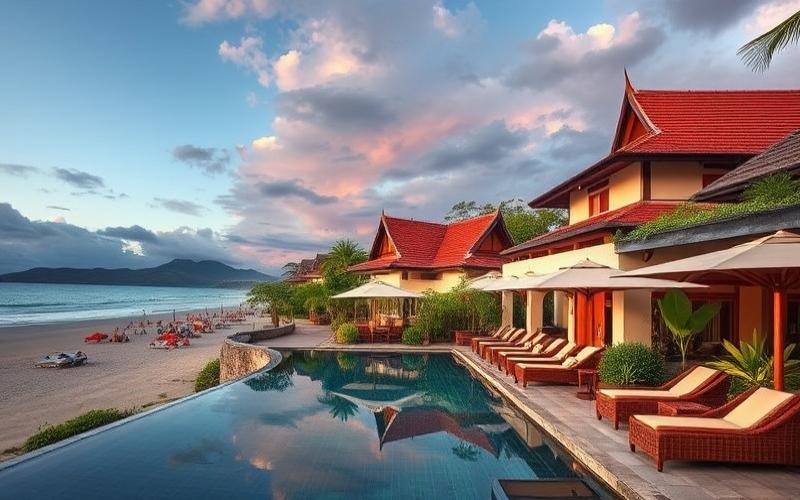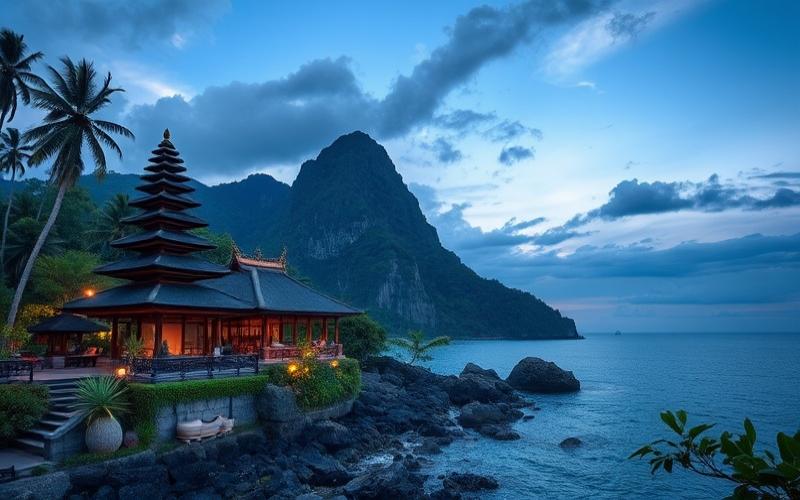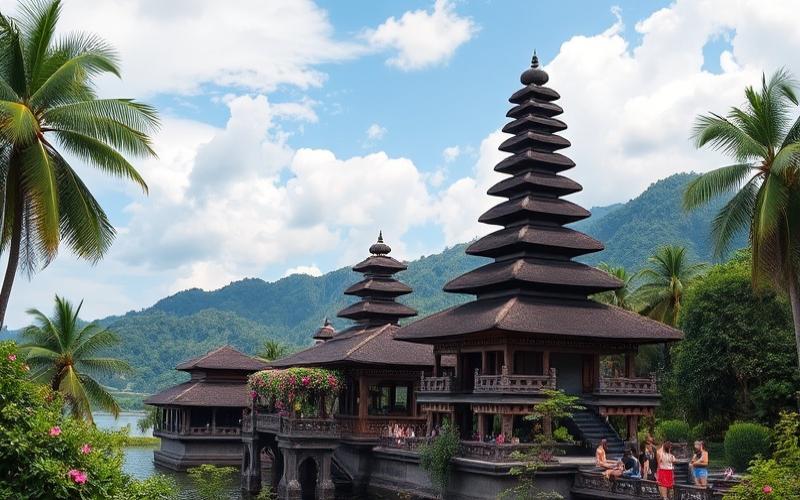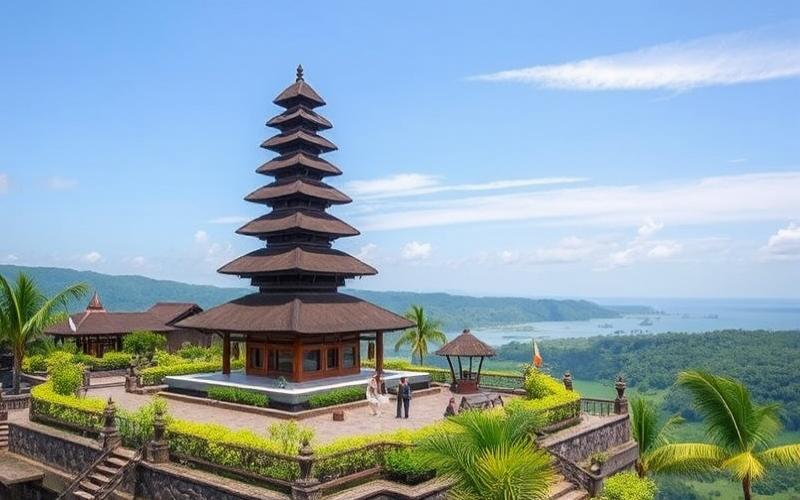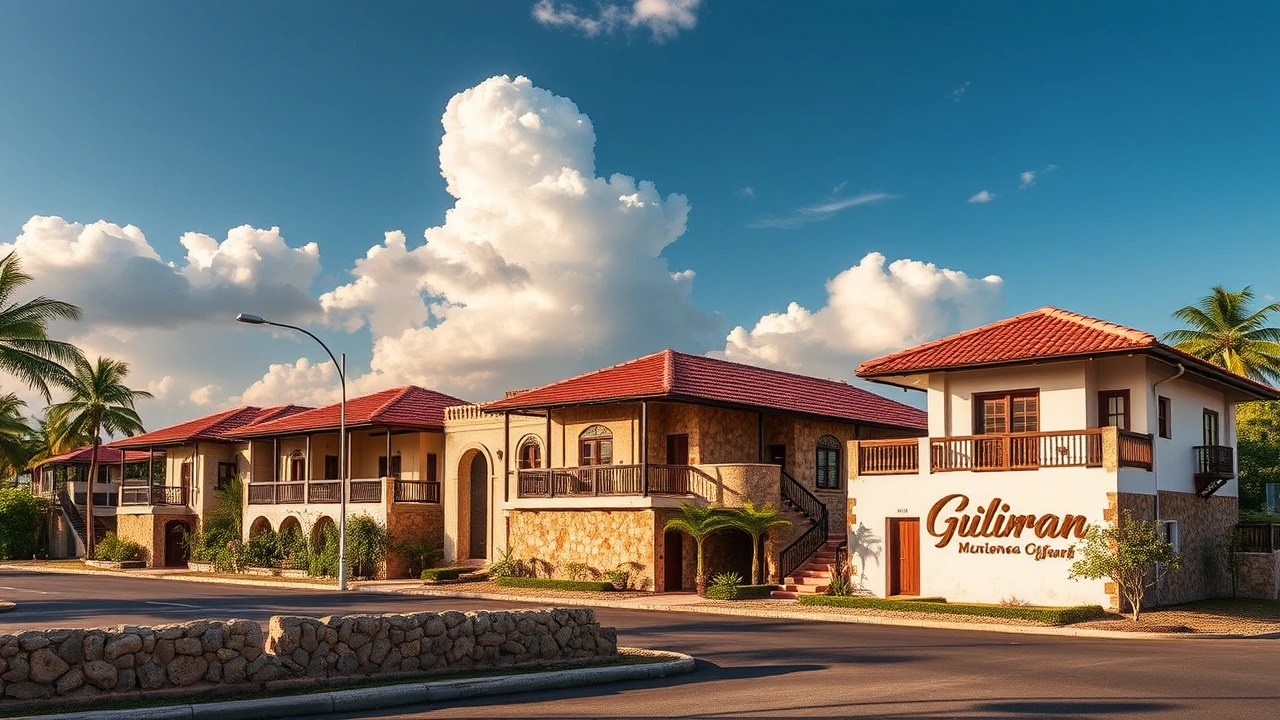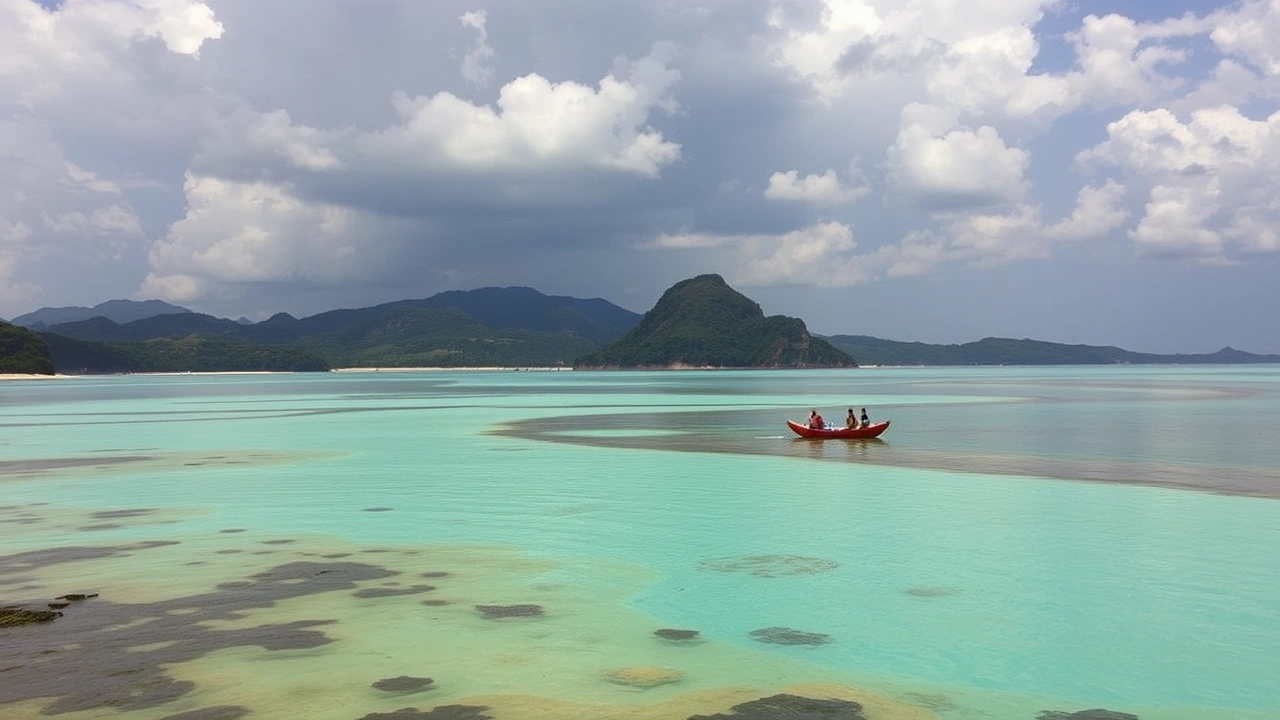
 Published on and written by Cyril Jarnias
Published on and written by Cyril Jarnias
Bali: A Dream Destination for Expat Retirees
As retirees worldwide seek attractive destinations to spend their golden years, the paradise island of Bali in Indonesia stands out as an increasingly popular choice. With its breathtaking landscapes, rich culture, and affordable cost of living, this enchanting island offers an ideal living environment for expat seniors looking to enjoy a peaceful and rewarding retirement.
This article explores investment opportunities in Bali, highlighting the most promising and strategic sectors for those who wish not only to enjoy the Balinese quality of life but also to secure their financial future in an exotic and welcoming environment.
Bali’s Best Cities for a Fulfilling Retirement
| City | Quality of Life | Medical Infrastructure | Cultural Activities & Leisure | Expat Community | Cost of Living & Real Estate |
|---|---|---|---|---|---|
| Ubud | Peaceful atmosphere surrounded by rice fields, temperate climate, omnipresent spirituality. Ideal for art lovers and meditation enthusiasts. | Presence of modern clinics and access to nearby medical centers. Adequate services but sometimes less developed than in the West. | Famous for its museums, art galleries, traditional performances (Balinese dances), creative workshops, and wellness retreats (yoga, meditation). Numerous literary cafes and artisan markets. | Strong international presence; dynamic artistic community; many French or English-speaking social groups facilitating integration. | Reasonable cost with varied real estate offerings: villas in the heart of rice fields or modern residences near the cultural center. Good rental returns for senior investors seeking authenticity and tranquility. |
| Sanur | Popular residential neighborhood by the sea; relaxed atmosphere highly appreciated by seniors seeking peace, security, and a family-friendly environment. | Good level of medical infrastructure with a recognized international hospital; accessible pharmacies. | Seafront promenade ideal for gentle walks or cycling; calm beaches suitable for swimming year-round; lively local markets. | Significant community of retired expats (including French speakers) offering mutual support and numerous organized social activities. | Cost slightly lower than highly touristic areas; attractive real estate opportunities: secure apartments or single-family homes near the coastline. |
| Canggu | Modern neighborhood combining recent infrastructure with rural charm: trendy cafes, organic stores, preserved green spaces. | Quick access to several reputable private clinics; proximity to international hospitals in neighboring areas like Seminyak/Denpasar. | Multiple fitness/yoga/pilates studios; international gourmet restaurants; regular cultural events (weekend artisan market) while maintaining a peaceful atmosphere away from traditional tourist bustle. | Young but growing expat community among active retirees seeking a contemporary lifestyle without giving up traditional Balinese calm. | Higher prices than Sanur but safe long-term investment due to strong rental demand: secure contemporary villas often sought by foreigners. |
Additional Key Points:
- Bali remains generally affordable compared to major Western destinations.
- Seniors benefit from diverse real estate options allowing purchase or rental according to their needs.
- Medical infrastructure is adequate in these major cities but it’s advisable to obtain appropriate international health insurance.
- Local cultural richness and community dynamism facilitate successful integration.
Ubud attracts with its unique spiritual dimension that appeals to those wishing to give deep meaning to their retirement.
Sanur remains the favorite choice for its serene setting along the Indian Ocean combined with all necessary daily amenities.
Canggu is gradually establishing itself as an ideal compromise between urban modernity and environmental quality.
These three cities currently represent the best options for fully enjoying retirement under the Balinese sun while benefiting from the optimal balance between Western comfort and exotic discovery.
Good to Know:
Ubud is a popular destination for seniors due to its cultural and spiritual richness, offering numerous artistic workshops and yoga retreats, along with access to adequate medical care. Sanur attracts with its tranquil beaches and infrastructure suited to retired expats, where modern clinics and a friendly international community make it ideal for building connections. Canggu offers a balanced living environment between modern amenities and tranquility, with diverse restaurants and a booming real estate market, making it interesting for investing in properties at still competitive prices. The cost of living in Bali is generally affordable but can vary by location, with Canggu and Ubud being slightly more expensive than Sanur, which remains an economical choice for enjoying a seaside retirement.
Investing in Bali Real Estate: A Guide for Senior Expats
Bali attracts a growing number of senior expats thanks to its exceptional living environment, quality of life, and warm welcome from the local population. The island offers a unique combination of paradise beaches, lush rice fields, pleasant tropical climate year-round, and a culture rich in traditions where community spirit prevails. Seniors find not only an advantageous cost of living but also a diverse range of cultural, spiritual, and social activities that promote their well-being.
Real Estate Options for Expats in Bali
Foreign investors have access to different types of properties suited to seniors’ needs:
- Modern villas with private pools
- Traditional Balinese houses in wood or stone
- Secure apartments in serviced residences
Some communities also offer housing specifically designed for retirees, facilitating social integration and access to care.
| Property Type | Main Characteristics |
|---|---|
| Villa | Pool, private garden, high-end amenities |
| Traditional House | Authentic Balinese architecture |
| Apartment | 24/7 security, shared services (pool/gym/spa) |
Most Popular Regions Among Expats
- Seminyak: Lively atmosphere, proximity to shops/restaurants/beaches
- Canggu: Relaxed and trendy vibe; ideal for surfing
- Ubud: Cultural heart amid rice fields; peaceful atmosphere
- Jimbaran/Nusa Dua: Calm beaches; family-friendly and secure environment
Legal & Financial Framework for Buying in Indonesia
Real estate purchase by foreigners follows specific rules:
- Full ownership (“Hak Milik”) is only accessible to Indonesian citizens.
- Foreigners can access:
- Right of Use (“Hak Pakai”), typically valid for up to 80 years (initially 30 years renewable)
- Long-term lease rights (“Leasehold”), often for 25 to 50 years renewable
Associated costs include:
- Notary fees (approximately 1% of price)
- Acquisition taxes (5%)
- Annual fees: low property tax + variable maintenance depending on property type
Local financing remains limited: most purchases are made cash or through personal international financing.
Practical Tips to Secure Your Real Estate Investment
- Always work with an experienced local real estate agent with established reputation.
- Consult a lawyer specialized in Indonesian land law.
- Thoroughly verify the legal status of the land or property (clear title).
- Research the neighborhood and ensure the area matches your expectations.
- If possible, choose a secure residence favored by other senior expats.
- Always obtain appropriate home insurance.
The essential is to conduct all necessary checks before purchase to avoid future disputes; surrounding yourself from the start with reliable local experts remains your best protection for a successful real estate investment in Bali.
Good to Know:
Bali particularly attracts senior expats due to its paradise-like setting, mild climate, and hospitable culture. Real estate investment options in Bali include luxury villas, charming traditional houses, and modern apartments, particularly popular in Seminyak, Canggu, Ubud, and Jimbaran. However, navigating Indonesian property laws can be complex for foreigners: they can own properties through long-term lease contracts (Hak Pakai) rather than direct acquisition. Additional costs include maintenance, property tax, and notary fees. It’s crucial to collaborate with an experienced local real estate agent and conduct thorough due diligence to secure your investment. Limited financing options exist for foreigners, typically in the form of short-term loans from local banks.
Cost of Living in Bali: An Affordable Destination for European Retirees
Cost of Living Comparison Between Bali and Europe
| Expense Category | Bali (USD/month) | France (USD/month)* | Spain (USD/month)* | Italy (USD/month)* |
|---|---|---|---|---|
| Accommodation | 300–500 | 800–1,200 | 600–900 | 650–950 |
| Food | 150–250 | 350–500 | 300–450 | 320–470 |
| Healthcare | 150 | >130 | >120 | |
| Entertainment | 100–200 | >250 | >220 | >200 |
*Estimate based on major European cities for a single person.
Concrete Example of Average Monthly Budget for a European Retiree in Bali
- Furnished apartment rent: $400
- Local food and restaurants: $200
- International health insurance: $80
- Transportation (scooter rental, taxi): $60
- Entertainment and outings: $150
- Utilities & internet: $60
Estimated total monthly budget: $950
Approximately €880, significantly lower than costs in most Western European countries.
Advantages Offered by Bali for European Retirees
- Cost of living approximately 40% lower than in France, allowing better quality of life with the same retirement income level.
- Wide range of suitable accommodations: modern villas with pools, secure apartments.
- Easy access to private medical care, international clinics available on site.
- Pleasant tropical climate year-round, renowned beaches and varied landscapes.
- Dynamic expat community facilitating social integration.
List of services adapted for seniors:
- Home medical assistance available in major tourist areas
- Affordable domestic staff for cleaning or daily help
- International social clubs organizing cultural or sports activities
Local Culture & Quality of Life
Bali attracts with its Balinese friendliness, respect for elders, and soothing atmosphere. Local cuisine is healthy and varied. Numerous temples, artisan markets, and festivals allow for enriching cultural immersion.
“I chose Bali for my retirement because here I can fully enjoy life without deprivation. Medical care is quickly accessible in case of emergency thanks to my international insurance. The climate is ideal year-round!”
— Bernard, French retiree settled in Ubud
“The kindness of the Balinese people won me over immediately. I joined a French-speaking club that offers yoga, excursions, or conferences every week.”
— Maria-Luisa, Spanish retiree living in Seminyak
Good to Know:
In Bali, the cost of living is considerably lower than in many European countries, making it a popular destination for retirees. A European expat can expect a monthly budget of 900 to 1,500 euros, covering rent for comfortable housing, meals, and other daily necessities. For example, the cost of a local meal is about 2 euros, while renting a house can cost between 300 and 500 euros per month. Medical care is also notably affordable while maintaining acceptable standards. Leisure activities, such as cultural outings and nature excursions, are accessible at low prices, enriching seniors’ daily lives. Moreover, the pleasant climate and warm welcome from the local community enhance the quality of life. European retirees, like Jean and Monique, affirm they appreciate services adapted for seniors, such as proximity to healthcare infrastructure and variety of cultural activities. These advantages make Bali not only an economical but also an enriching place to spend retirement.
Disclaimer: The information provided on this website is for informational purposes only and does not constitute financial, legal, or professional advice. We encourage you to consult qualified experts before making any investment, real estate, or expatriation decisions. Although we strive to maintain up-to-date and accurate information, we do not guarantee the completeness, accuracy, or timeliness of the proposed content. As investment and expatriation involve risks, we disclaim any liability for potential losses or damages arising from the use of this site. Your use of this site confirms your acceptance of these terms and your understanding of the associated risks.







